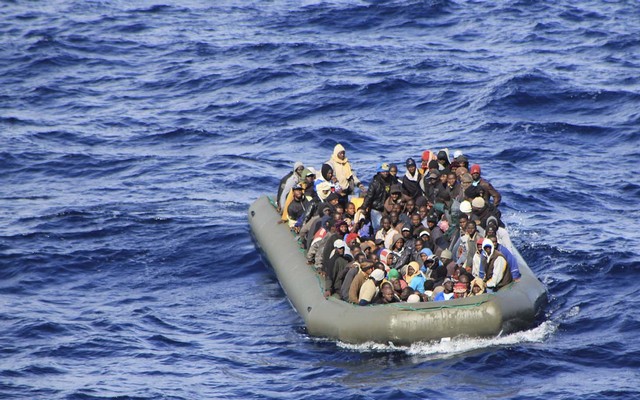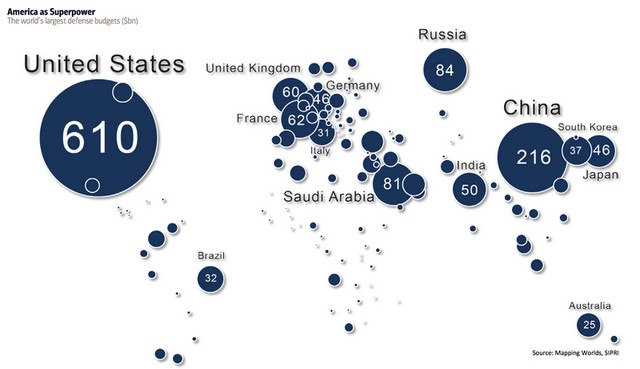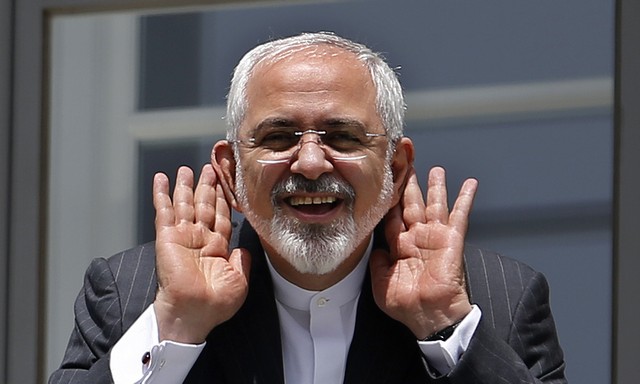By David Bromwich
“We’re going to push and push until some larger force makes us stop.”
David Addington, the legal adviser to Vice President Dick Cheney, made that declaration to Jack Goldsmith of the Office of Legal Counsel in the months after September 11, 2001. Goldsmith would later recall that Cheney and Addington were the first people he had ever met of a certain kind: “Cheney is not subtle, and he has never hidden the ball. The amazing thing is that he does what he says. Relentlessness is a quality I saw in him and Addington that I never saw before in my life.”
Goldsmith did not consider himself an adversary of Cheney and Addington. He probably shared many of their political views. What shocked him was their confidence in a set of secret laws and violent policies that could destroy innocent lives and warp the Constitution. The neoconservatives — the opinion-makers and legislative pedagogues who since 2001 have justified the Cheney-Bush policies — fit the same description. They are relentless, they push until they are stopped, and thus far they have never been stopped for long.
The campaign for the Iraq war of 2003, the purest example of their handiwork, began with a strategy memorandum in 1996, so it is fair to say that they have been pitching to break up the Middle East for a full two decades. But fortune played them a nasty trick with the signing of the nuclear agreement between the P5+1 powers and Iran. War and the prospect of war have been the source of their undeniable importance. If the Iran nuclear deal attains legitimacy, much of their power will slip through their fingers. Theimperialist idealism that drives their ventures from day to day will be cheated of the enemy it cannot live without.
Iran might then become just one more unlucky country — authoritarian and cruelly oppressive but an object of persuasion and not the focus of a never-ending threat of force. The neoconservatives are enraged and their response has been feverish: if they were an individual, you would say that he was a danger to himself and others. They still get plenty of attention and airtime, but the main difference between 2003 and 2015 is the absence of a president who obeys them — something that has only served to sharpen their anger.
President Obama defended the nuclear deal vigorously in a recent speech at American University. This was the first such extended explanation of a foreign policy decision in his presidency, and it lacked even an ounce of inspirational fluff. It was, in fact, the first of his utterances not likely to be remembered for its “eloquence,” because it merits the higher praise of good sense. It has been predictably denounced in some quarters as stiff, unkind, ungenerous, and “over the top.”
Obama began by speaking of the ideology that incited and justified the Iraq War of 2003. He called it a “mindset,” and the word was appropriate — suggesting a pair of earphones around a head that prevents us from hearing any penetrating noise from the external world. Starting in the summer of 2002, Americans heard a voice that said: Bomb, invade, occupy Iraq! And do the same to other countries! For the sake of our sanity, Obama explained, we had to take off those earphones:
“We had to end the mindset that got us there in the first place. It was a mindset characterized by a preference for military action over diplomacy; a mindset that put a premium on unilateral U.S. action over the painstaking work of building international consensus; a mindset that exaggerated threats beyond what the intelligence supported. Leaders did not level with the American people about the costs of war, insisting that we could easily impose our will on a part of the world with a profoundly different culture and history. And, of course, those calling for war labeled themselves strong and decisive, while dismissing those who disagreed as weak — even appeasers of a malevolent adversary.”
In this precise catalogue of mental traits, Obama was careful to name no names, but he made it easy to construct a key:
A mindset characterized by a preference for military action: President George W. Bush ordering the U.N. nuclear inspectors out of Iraq (though they had asked to stay and complete their work) because there was a pressing need to bomb in March 2003;
A mindset that put a premium on unilateral U.S. action: Secretary of Defense Donald Rumsfeld dismissing the skeptical challenge and eventual non-participation of France and Germany as proof of the irrelevance of “old Europe”;
A mindset that exaggerated threats: the barely vetted New York Times stories by Judith Miller and Michael Gordon, which an administration bent on war first molded and then cited on TV news shows as evidence to justify preventive war;
Leaders did not level with the American people about the costs of war:Deputy Secretary of Defense Paul Wolfowitz pooh-poohing the estimate by Army Chief of Staff General Eric Shinseki that it would take 400,000 troops to maintain order in Iraq after the war;
Insisting that we could easily impose our will on a part of the world with a profoundly different culture and history: the bromides of Bush and National Security Advisor Condoleezza Rice on the indwelling Arab spirit that yearns for American-style democracy across the Middle East.
Obama went on to assert that there was a continuity of persons as well as ideas between the propagandists who told us to bomb, invade, and occupy Iraq in 2003 and those now spending tens of millions of dollars to ensure that Congress will abort the nuclear deal. “The same mindset,” the president remarked, “in many cases offered by the same people who seem to have no compunction with being repeatedly wrong, led to a war that did more to strengthen Iran, more to isolate the United States, than anything we have done in the decades before or since.”
Those people have never recognized that they were wrong. Some put the blame on President Bush or his viceroy in Baghdad, the administrator of the Coalition Provisional Authority, L. Paul Bremer, for mismanaging the occupation that followed the invasion; others continue to nurse the fantastic theory that Saddam Hussein really was in possession of nuclear weapons butsomehow smuggled them across the border to Syria and fooled both U.S. reconnaissance teams and the U.N. inspectors; still others maintain that Shiite militias and weaponry dispatched to Iraq from Iran were the chief culprits in the disaster of the postwar insurgency.
Bear in mind that these opinion-makers, in 2003, hardly understood the difference between Shiite and Sunni in the country they wanted to invade. To put the blame now on Iran betrays a genius for circular reasoning. Since all Shia militias are allied by religion with Iran, it can be argued that Iraq was not destroyed by a catastrophic war of choice whose effects set the region on fire. No: the United States under Bush and Cheney was an unpresuming superpower doing its proper work, bringing peace and democracy to one of the dark places of the earth by means of a clean, fast, “surgical” war. In 2004 and 2005, just as in 2015, it was Iran that caused the trouble.
Simple Facts That Are Not Known
Because the Israeli Prime Minister Benjamin Netanyahu has scorned the nuclear deal without any attention to detail, the president felt compelled in his speech to recognize candidly the difference of national interest that exists between Israel and the United States. Though we are allies, he said, we are two different countries, and he left his listeners to draw the necessary inference: it is not possible for two countries (any more than two persons) to be at once different and the same. Obama went on to connect the nations in question to this premise of international politics:
“I believe [the terms of the agreement] are in America’s interest and Israel’s interest. And as president of the United States, it would be an abrogation of my constitutional duty to act against my best judgment simply because it causes temporary friction with a dear friend and ally.”
The last affirmation is critical. A president takes an oath to “preserve, protect, and defend the constitution of the United States” — that is, to attend to the interest of his own country and not another.
The danger of playing favorites in the world of nations, with a partiality that knows no limits, was a main topic of George Washington’s great Farewell Address. “Permanent, inveterate antipathies against particular nations, and passionate attachments for others, should be excluded,” said Washington, because
“a passionate attachment of one nation for another produces a variety of evils. Sympathy for the favorite nation, facilitating the illusion of an imaginary common interest in cases where no real common interest exists, and infusing into one the enmities of the other, betrays the former into a participation in the quarrels and wars of the latter without adequate inducement or justification.”
There are Americans today who submit to a ruling passion that favors uniquely the interests of Israel, and the president had them in mind when he invoked his duties under the Constitution toward the only country whose framework of laws and institutions he had sworn to uphold. Genuine respect for another democracy formed part of his thinking here. Not only was Obama not elected to support Netanyahu’s idea of America’s interest, he was also not elected by Israelis to support his own idea of Israel’s interest.
In a recent commentary in Foreign Affairs, the prominent Israeli journalist and former government adviser Daniel Levy pointed out a fact that is not much remembered today regarding Netanyahu’s continuous effort to sabotage negotiations with Iran. It was the Israeli prime minister who initially demanded that nuclear negotiations be pursued on a separate track from any agreement about the trade or sale of conventional weapons. He chose that path because he was certain it would cause negotiations to collapse. The gambit having failed, he now makes the lifting of sanctions on conventional weaponry a significant objection to the “bad deal” in Vienna.
Obama concluded his argument by saying that “alternatives to military action will have been exhausted if we reject a hard-won diplomatic solution that the world almost unanimously supports. So let’s not mince words. The choice we face is ultimately between diplomacy or some form of war — maybe not tomorrow, maybe not three months from now, but soon.” A measured statement and demonstrably true.
But you would never come within hailing distance of this truth if you listened to the numbers of Congressional Republicans who repeat the neoconservative watchwords and their accompanying digests of the recent history of the Middle East. They run through recitations of the dramatis personae of the war on terror with the alacrity of trained seals. Israel lives in a “dangerous neighborhood.” Islamists are “knocking on our door” and “looking for gaps in the border with Mexico.” Iran is “the foremost state sponsor of terrorism in the world.” Barack Obama is “an appeaser” and “it’s five minutes to midnightin Munich.” Elected officials who walk on two legs in the twenty-first century are not embarrassed to say these things without the slightest idea of their provenance.
If there was a fault in the president’s explanation of his policy, it lay in some things he omitted to say. When you are educating a people who have been proselytized, as Americans have been, by a political cult for the better part of two decades, nothing should be taken for granted. Most Americans do not know that the fanatical Islamists, al-Qaeda, al-Nusra, the Islamic State (IS) — the active and destructive revolutionary force in the greater Middle East at the moment — are called Sunni Muslims. Nor do they know that the Shia Muslims who govern Iran and who support the government of Syria have never attacked the United States.
To say it as simply as it should be said: the Shiites and Sunnis are different sects, and the Shiites of Iran are fighting against the same enemies the U.S. is fighting in Syria and elsewhere. Again, most Americans who get their information from miscellaneous online scraps have no idea that exclusively Sunni fanatics made up the force of hijackers who struck the World Trade Center on September 11, 2001. They would be surprised to learn that none of these people came from Iraq or Iran. They do not know that 15 of the 19 came from Saudi Arabia — a supposed ally of the United States. And they do not know that the Islamist warriors who brought chaos and destruction to Syria and Iraq are bankrolled in part by members of the Saudi and Qatari elite who have nothing to do with Iran. It has never been emphasized — it is scarcely written in a way that might be noticeable even in our newspaper of record — that Iran itself has carried the heaviest burden of the fight against IS.
Throughout his presidency, when speaking of Iran, Obama has mixed every expression of hope for improved relations with a measure of opprobrium. He has treated Iran as an exceptional offender against the laws of nations, a country that requires attention only in the cause of disarmament. He does this to assure the policy elite that he respects and can hum the familiar tunes. But this subservience to cliché is timid, unrealistic, and pragmatically ill advised. Franklin Roosevelt and Winston Churchill did not denounce the Soviet Union when they took that country’s dictator, Joseph Stalin, as a partner in war in 1941, though Stalin’s crimes exceeded anything attributable to the Iranian mullahs. Ritual denunciation of a necessary ally is a transparent absurdity. And in a democracy, it prevents ordinary people from arriving at an understanding of what is happening.
Nuclear Deals and Their Critics, Then and Now
What are the odds that the neoconservatives and the Republicans whose policy they manage will succeed in aborting the P5+1 nuclear deal? One can take some encouragement from the last comparably ambitious effort at rapprochement with an enemy: the conversations between President Ronald Reagan and the Soviet head of state Mikhail Gorbachev in Reykjavik, Washington, and Moscow in 1986, 1987, and 1988. At the same time, one ought to be forewarned by the way that unexpected change of course was greeted. The neoconservative cult was just forming then. Some of its early leaders like Richard Perle had positions in the Reagan administration, and they were unanimously hostile to the talks that would yield the Intermediate-Range Nuclear Forces Treaty (INF) of 1988. The agreement set out the terms for the destruction of 2,611 missiles, capable of delivering 4,000 warheads — the biggest step in lowering the risk of nuclear war since the Test Ban Treaty championed by President Kennedy and passed in late 1963.
But as James Mann recounted in The Rebellion of Ronald Reagan — a narrative of the anticommunist president’s surprising late turn in foreign policy — all of Reagan’s diplomatic efforts were deeply disapproved at the time, not only by the neoconservative hotheads but by those masters of the “diplomatic breakthrough,” former President Richard Nixon and former Secretary of State Henry Kissinger; by the most widely quoted columnists of the right, George Will and William Safire; and by Timemagazine, which ran a story titled “Has Reagan Gone Soft?” The Reagan-Gorbachev talks were looked upon with suspicion, too, by “realists” and “moderates” of the political and security establishment, including Robert Gates and then-Vice President George H.W. Bush. Why Gates? Because he was deputy director of the CIA and the Agency was thoroughly convinced that Soviet Russia and its leadership could never change. Why Bush? Because he was already running for president.
The political and media establishment of that moment was startled by the change that President Reagan first signaled in 1986, as startled as today’s establishment has been by the signing of the P5+1 agreement. This was the same Ronald Reagan who in 1983 had called the Soviet Union “an evil empire.” At the end of his visit to Moscow in June 1988, Reagan was asked by the ABC News reporter Sam Donaldson, “Do you still think you’re in an evil empire, Mr. President?”
“No,” Reagan replied. “I was talking about another time and another era.” And he stuck to that answer at a press conference the next day, adding: “I think that a great deal of [the change] is due to the General Secretary, who I have found different than previous Soviet leaders… A large part of it is Mr. Gorbachev as a leader.”
By 1987, Reagan’s popularity had hit a low of 47% — largely because of the Iran-Contra scandal — but he still retained his reputation as the most irreproachable defender of the West against world communism. Obama for his part has done everything he could — short of emulating the invade-and-occupy strategy of Bush — to maintain U.S. force projection in the Middle East in a manner to which Washington has become accustomed since 9/11. He doubtless believes in this policy, and he has surrounded himself with adepts of “humanitarian war”; but he clearly also calculated that a generous ration of conformity would protect him when he tried for his own breakthrough in negotiations with Iran.
In the end, Reagan got a 93-5 vote in the Senate for his nuclear treaty with the Soviet Union. Obama is hoping for much less — a vote of less than two thirds of that body opposed to the Iran settlement. But he is confronted by the full-scale hostility of a Republican party with a new character and with financial backing of a new kind.
The U.S. military and security establishment has sided with the president. And though the fact is little known here, so have the vast majority of Israelis who can speak with any authority on issues of defense and security. Even the president of Israel, Reuven Rivlin, has signaled his belief that Netanyahu’s interventions in American politics are wrong. Former Prime Minister Ehud Barak has advised that, however reluctantly, Israel should accept the nuclear agreement and forge an understanding with the U.S. about what to do in case of its violation. To this remarkable consensus should be added the public letter — signed by 29 American scientists, many of them deeply involved in nuclear issues, including six recipients of the Nobel Prize — which vouches for the stringency of the agreement and praises the “unprecedented” rigor of the 24-day cap on Iranian delays for site inspection: an interval so short (as no one knows better than these scientists) that successful concealment of traces of nuclear activity becomes impossible.
Two other public letters supporting the nuclear deal have been notable. The first was signed by former U.S. diplomats endorsing the agreement unambiguously, among them Ryan Crocker, the American ambassador to Iraq after 2003; Nicholas Burns, who negotiated with Iran for the younger Bush; and Daniel Kurtzer, a former ambassador to Israel and Egypt who served under both President Bill Clinton and George W. Bush. A further letter carried the personal and institutional authority of dozens of retired admirals and generals. So close an approach to unanimity on the benefits of an agreement among the U.S. military, diplomatic, and scientific communities has seldom been achieved. Even President Reagan could not claim this degree of support by qualified judges when he submitted the INF treaty to the Senate.
Such endorsements ought to represent a substantial cause for hope. But Obama’s supporters would be hard pressed to call the contest a draw on television and radio. The neoconservatives — and the Republicans channeling them — are once again working with boundless energy. Careers are being built on this fight, as in the case of Senator Tom Cotton, and more than onepresidential candidacy has been staked on it.
On the day of Obama’s speech, even a relatively informed talk show host like Charlie Rose allowed his coverage to slant sharply against the agreement. His four guests were the Haaretz reporter Chemi Shalev; the Daily Beastcolumnist Jonathan Alter; the former State Department official and president of the Council on Foreign Relations Richard Haass; and the neoconservative venture capitalist, Mark Dubowitz, who has come to be treated as an expert on the nuclear policies and government of Iran.
Haass, passionately opposed to the agreement, said that the president’s speech had been “way over the top,” and hoped Congress would correct its “clear flaws.” Shalev rated the speech honest and “bracing” but thought it would leave many in the Jewish community “offended.” Dubowitz spoke of Iran as a perfidious nation that ought to be subjected to relentless and ever-increasing penalties. His solution: “empower the next president to go back and renegotiate.” Jonathan Alter alone defended the agreement.
Planning to Attack Iran, 2002-2015
By now, the active participants in mainstream commentary on the War on Terror all have a history, and one can learn a good deal by looking back. Haass, for example, a pillar of the foreign policy establishment, worked in the State Department under Bush and Cheney and made no public objection to the Iraq War. Dubowitz has recently co-authored several articles with Reuel Marc Gerecht, a leading propagandist for the 2003 invasion of Iraq. In acharacteristic piece in the Wall Street Journal last November, Gerecht and Dubowitz argued that the P5+1 negotiations opened a path to a nuclear bomb for Iran. President Obama, they said, was too weak and trapped by his own errors to explore any alternatives, but there were three “scenarios” that a wiser and stronger president might consider. First, “the White House could give up on diplomacy and preemptively strike Iran’s nuclear sites”; second, “the administration could give up on the current talks and default back to sanctions”; third, “new, even more biting sanctions could be enacted, causing Tehran considerable pain.” The range of advisable policy, for Gerecht and Dubowitz, begins with “crippling sanctions” and ends with a war of aggression.
These scenarios typify the neoconservative “options.” Writing on his own inthe Atlantic in June 2013, Dubowitz informed American readers that there was nothing to celebrate in the Iranian presidential election that brought to power the apparently rational and moderate Hassan Rouhani. “A loyalist of Iran’s supreme leader and a master of nuclear deceit,” Rouhani, as interpreted by Dubowitz, is a false friend whose new authority “doesn’t get us any closer to stopping Iran’s nuclear drive.”
Consider Gerecht in his solo flights and you can see what made the president say that these are the people who gave us the Iraq War. They were as sure then about the good that would follow the bombing and invasion of that country as they are now about the benefits of attacking Iran. Indeed, Gerecht has the distinction of having called for an attack on Iran even before the official launch of the Bush strategy on Iraq.
It is said that Dick Cheney’s August 26, 2002, speech to the Veterans of Foreign Wars marked the first formal description of the War on Terror offered by a U.S. leader to American citizens. But Gerecht, a former CIA specialist on the Middle East, stole a march on the vice president. In theWeekly Standard of August 6, 2002, under the title “Regime Change in Iran?,” he declared his belief that President Bush was the possessor of a “revolutionary edge and appeal… in the Middle East.” The younger Bush had
“sliced across national borders and civilizational divides with an unqualified assertion of a moral norm. The president declared, ‘The people of Iran want the same freedoms, human rights, and opportunities as people around the world.’ America will stand ‘alongside people everywhere determined to build a world of freedom, dignity, and tolerance.’”
The analyst Gerecht took up where the evangelist Bush left off: the relevant country to attack in August 2002 — on behalf of its people of course — was Iran. Gerecht had no doubt that
“the Iranian people overwhelmingly view clerical rule as fundamentally illegitimate. The heavily Westernized clerics of Iran’s religious establishment — and these mullahs are on both sides of the so-called ‘moderate-conservative’ split — know perfectly well that the Persian word azadi, ‘freedom,’ is perhaps the most evocative word in the language now… Azadi has also become indissolubly associated with the United States.”
This was the way the neoconservatives were already writing and thinking back in August 2002. It is hard to know which is more astounding, the show of philological virtuosity or the self-assurance regarding the advisability of war against a nation of 70 million.
General prognostications, however, are never enough for the neoconservatives, and Gerecht in 2002 enumerated the specific benefits of disorder in Iraq and Iran:
“An American invasion [of Iraq] could possibly provoke riots in Iran — simultaneous uprisings in major cities that would simply be beyond the scope of regime-loyal specialized riot-control units. The army or the Revolutionary Guard Corps would have to be pulled into service in large numbers, and that’s when things could get interesting.”
That was how he had it scored. Bush, the voice of freedom, would be adored as a benevolent emperor at a distance:
“President Bush, of course, doesn’t need National Iranian Television broadcasts to beam his message into the Islamic Republic. Everything he says moves at light speed through the country. The president just needs to keep talking about freedom being the birthright of Muslim peoples.”
Such was the neoconservative recipe for democracy in the Middle East: beam the words of George W. Bush to people everywhere, invade Iraq, and spark a democratic uprising in Iran (assisted if necessary by U.S. bombs and soldiers).
For a final glimpse of the same “mindset,” look closely at Gerecht’s advice on Syria in June 2014. Writing again in the Weekly Standard, he deprecated the very idea of getting help from Iran in the fight against the Islamic State. “The Enemy of My Enemy Is My Enemy” declares the title of the piece, and the article makes the same point with a minimal reliance on facts. Sunni terrorists are portrayed as impetuous youngsters who naturally go too far, but it is too early to gauge their trajectory: the changes they bring may not ultimately be uncongenial to American interest. The Shiite masterminds of Iran, on the other hand, have long ago attained full maturity and will never change. Gerecht’s hope, last summer, was that substantial Iranian casualties in a war against IS would lead to the spontaneous uprising that failed to materialize in 2003.
“It is possible that the present Sunni-Shiite conflict could, if the Iranian body count rises and too much national treasure is spent, produce shock waves that fundamentally weaken the clerical regime… Things could get violent inside the Islamic Republic.”
The vision underlying this policy amounts to selective or strategic tolerance of al-Qaeda and IS for the sake of destroying Iran.
Will the War on Terror Be Debated?
How can such opinions be contested in American politics? The answer will have to come from what remains of the potential opposition party in the war on terror. Senator Chris Murphy of Connecticut has been a remarkable exception, but for the most part the Democrats are preoccupied with domestic policy. If almost two-thirds of Congress today is poised to vote against the Iran settlement, this embarrassment is the result of years of systematic neglect. Sherrod Brown, Elizabeth Warren, Dick Durbin, Ron Wyden, Tammy Baldwin, and a few others have the talent to lead an opposition to a pursuit of the war on terror on the neoconservative plan, but to have any effect they would have to speak up regularly on foreign policy.
Meanwhile, the Republican Party and its billionaire bankrollers are playing the long game on Iran. They would like to gain the two-thirds majority to override Obama’s veto of a Congressional vote against the nuclear agreement, but they do not really expect that to happen. The survival of any agreement, however, depends not only on its approval but on its legitimation. Their hope is to depress public support for the P5+1 deal so much that the next president and members of the next Congress would require extraordinary courage to persist with American participation.
In the Foreign Affairs column mentioned earlier, Daniel Levy concluded that the long game is also Benjamin Netanyahu’s strategy:
”Netanyahu is going for a twofer — if he loses on the veto-proof super majority in Congress, he can still succeed in keeping the Iran deal politically controversial and fragile and prevent any further détente with Iran. The hope, in this case, is that the next U.S. administration can resume the status quo ante in January 2017.”
What we are seeing, then, is not simply a concentrated effort that will end with the vote by the Senate in September on the P5+1 nuclear deal. It is the earliest phase of a lobbying campaign intended to usher in a Republican president of appropriate views in January 2017.
One may recognize that the money is there for such a long-term drive and yet still wonder at the virulence of the campaign to destroy Iran. What exactly allows the war party to keep on as they do? Within Israel, the cause is a political theology that obliges its believers to fight preemptive wars without any end in sight in order to guard against enemies who have opposed the existence of the Jewish state ever since its creation. This is a defensive fear that responds to an irrefutable historical reality. The neoconservatives and the better informed among their Republican followers are harder to grasp — harder anyway until you realize that, for them, we are Rome and the Republican Party is the cradle of future American emperors, praetors, and proconsuls.
“Ideology,” as the political essayist and Czech dissident Vaclav Havel once wrote, is “the bridge of excuses” a government offers to the people it rules. Between 2001 and 2009, the U.S. government was run by neoconservatives; they had a fair shot and the public judgment went against them; but in a climate of resurgent confusion about the Middle East, they have come a long way toward rebuilding their bridge. They are zealots but also prudent careerists, and the combination of money and revived propaganda may succeed in blurring many unhappy memories. Nor can they be accused of insincerity. When a theorist at a neoconservative think tank, the Foundation for Defense of Democracies or the American Enterprise Institute, affirms that democracy is what the Iranian people will have as soon as the U.S. cripples the resources of that country, he surely believes what he is saying. The projection seems as true to them now as it was in 2002, 2007, and 2010, as true as it will be in 2017 when a new president, preferably another young man of “spirit” like George W. Bush, succeeds the weak and deplorable Barack Obama. For such people, the battle is never over, and there is always another war ahead. They will push until they are stopped.
David Bromwich, a TomDispatch regular, teaches literature at Yale University and is the author of Moral Imagination.
Copyright 2015 David Bromwich
26 August, 2015
TomDispatch.com










